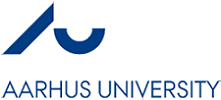Strategy, Organisation and Leadership

It is a time of transitions in the business community with increasing globalisation, sustainability efforts and digitalisation on the agenda. To act and contribute in tomorrow's emerging business community, skills related to strategy, organisational change and leadership are emphasised. These topics are in focus in this programme, which gives students relevant knowledge, skills, and competences for the future.
The MSc programme in Strategy, Organisation and Leadership (SOL) is a generalist degree programme that opens the door to a variety of jobs. The programme emphasises a holistic and cross-functional approach to organisations. The underlying assumption behind everything we teach our students is that humans are the biggest assets of any organisation, and that they lay the foundation for its success. We use classic as well as state-of-the-art research to convey knowledge on how to understand and work with challenges related to corporate and competitive strategy, organisational change, digitalisation, human development, performance and engagement.
Na studia magisterskie mogą kandydować wszyscy, którzy ukończyli studia licencjackie lub inżynierskie (studia I stopnia), studia magisterskie lub studiują na ostatnim roku studiów I-stopnia. Studia, które planujesz powinny mieć zbliżony profil do tych obecnych lub ukończonych, ponieważ w procesie rekrutacji kluczowa jest ich zgodność programowa.
Wykaz punktów ECTS – osoby, które są jeszcze w trakcie studiów, muszą załączyć wypis punktów ECTS, w którym będzie wykazane, jakie przedmioty były realizowane na studiach oraz ile punktów za nie otrzymano.
Dyplom ukończenia studiów licencjackich lub inżynierskich – jeśli jesteś absolwentem wyższej uczelni, nie potrzebujesz wypisu, wystarczy załączyć dyplom ukończenia studiów wraz z suplementem (w języku angielskim lub oryginał z tłumaczeniem)
Course description - należy przygotować dokument, zbierający cały sylabus ze studiów licencjackich. Takie sylabusy najczęściej są do pobrania na stronie uniwersytetu. Należy je przetłumaczyć na język angielski (można samodzielnie) i złączyć w jeden dokument. Warto też zapytać w dziekanacie uczelni, czy nie dysponują wersją angielską.
Oficjalna skala oceniania Twojej uczelni - możesz dostać taki dokument w dziekanacie Twojej uczelni lub skonstruować samodzielnie. W obu przypadkach dokument powinien zawierać pieczątkę dziekanatu.
Spełnienie wymagań w zakresie języka angielskiego można udokumentować w jeden z następujących sposobów:
IELTS – 6.5
TOEFL – 83 (Aarhus University TOEFL kod - 8935)
Uwaga: wymagania językowe mogą ulec zmianie. Przed wysłaniem aplikacji upewnij się jakie są wymagania językowe na konkretny kierunek bezpośrednio na stronie uczelni.
W przypadku zdawania certyfikatu IELTs upewnij się, czy uczelnia oprócz wymagań oceny końcowej nie ma również wymagań odnośnie ocen cząstkowych.
If you hold a programme from another university, you can have your programme evaluated at School of Business and Social Sciences, Aarhus University in order to find out if you meet the admission requirements. This evaluation will prioritize the sufficient content of the following subjects and ECTS-points.
In order to be admitted to the MSc programs students must have the following combination of courses from their bachelor’s degree:
| Marketing | 10 ECTS | Finance and Accounting | 25 ECTS (20 ECTS nuo 2015) |
| Statistics and Research Methods | 15 ETCS | Management /organisational studies | 10 ECTS |
| Managerial economics and operations management | 15 ETCS (20 ECTS nuo 2015) | Microeconomics | 5 ECTS |
| Business Economics in total | 80 ECTS |
Applicants from EU/EEA countries will be evaluated for the remaining seats on the MSc programmes. For each MSc programme a selection of specific academic areas has been chosen as specifically relevant. It is the grades from these academic areas that will be used when distributing applicants from EU/EEA countries to the remaining seats. Admission will be based on grade point average (GPA) of the specific academic area and applicants with the highest GPA will be admitted first. The calculation of the GPA will be based only on courses that have been passed and handed in documentation for by the time of the application deadline.
Selected academic areas for Strategy, Organisation and Leadership can be found here:
MSc programme | Course areas, which will be part of the GPA |
Strategy, Organisation and Leadership | Research Methods 10 ECTS |
Along with the application the applicant must upload:
- Course descriptions in English briefly describing the contents of the applicant's specific BA courses or other information that will contribute to describing the contents of the applicant's Bachelor's degree programme (may be translated by the applicant, but certified by the applicant's university).
- Official descriptions of relevant courses to be completed after the application deadline.
- An official description of the marking scale used at the applicant's home university.
The MSc in Strategy, Organisation and Leadership (SOL) is aimed at qualifying you to a wide variety of functions in private and public organisations. The programme provides you with a number of fundamental theoretical and analytical qualifications. You thereby acquire basic knowledge as well as a broad selection of methods and tools, which will enable you to contribute to resolving specific organisational and managerial problems.
Students following the programme in Strategy, Organisation and Leadership will acquire competences relevant to running private or public organisations from a managerial point of view.
More specifically, after graduation the student will be able to:
- Master social science methodologies and tools to analyse, assess and facilitate leadership and organising processes in complex, changing, and often unpredictable contexts.
- To assess and work with human aspects of effectiveness, performance, development, and engagement of the workforce.
- To collect information, synthesise and integrate various strategic perspectives and practices of different specialist professions.
Most common types of work for graduates 1-2 years after finishing their degree:
- Anasysis and/or evaluation
- Data collection and/or processing
- Business development
- Project management
- Strategy development and/or implementation
